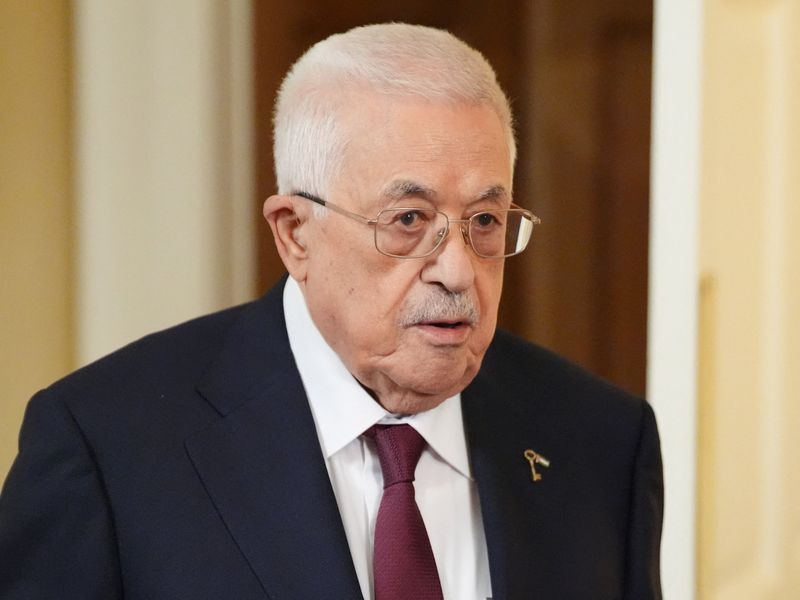By Michelle Nichols
UNITED NATIONS (Reuters) – The United Nations General Assembly voted on Friday to allow Palestinian President Mahmoud Abbas to address the annual gathering of world leaders next week via video after the United States said it would not give him a visa to travel to New York.
The resolution received 145 votes in favor and five votes against, while six countries abstained. It also allows Abbas and any other high-level Palestinian officials to take part in U.N. meetings or conferences via video over the next year if they are prevented from traveling to the United States.
The U.S. said last month that Abbas and about 80 other Palestinians would be affected by its decision to deny and revoke visas from members of the umbrella Palestine Liberation Organization and the West Bank-based Palestinian Authority.
“U.S. opposition to this resolution should come as no surprise,” U.S. diplomat Jonathan Shrier said before the vote. “The Trump Administration has been clear: we must hold the PLO and Palestinian Authority accountable for not complying with their commitments under the Oslo Accords, some of them very basic, and for undermining the prospects for peace.”
Under a 1947 U.N. “headquarters agreement,” the U.S. is generally required to allow access for foreign diplomats to the U.N. in New York. However, Washington has said it can deny visas for security, extremism and foreign policy reasons.
Abbas will also be allowed to appear via video at a summit at the United Nations on Monday – convened by France and Saudi Arabia – that seeks to rally support for a two-state solution. Several countries are expected to formally recognize a Palestinian state at the meeting.
The 193-member General Assembly agreed on Friday – by consensus, without a vote – that Saudi Crown Prince Mohammed bin Salman, the kingdom’s de facto ruler, could appear via video at Monday’s meeting.
(Reporting by Michelle Nichols; Editing by Howard Goller)

